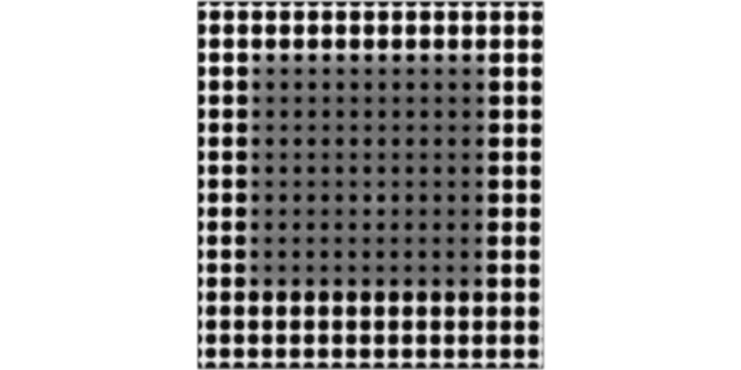- Share
- Share on Facebook
- Share on X
- Share on LinkedIn
Recruitment

PhD thesis funded for 36 months, starting in December 2021, Grenoble. UltraFlexible MicroEmulsions are a class of ternary or quaternary complex fluids that are also called "surfactant-free microemulsions". The mixture of water, a partially miscible polar "oil" (such as octanol), and a co-solvent with a "hydrotropic" property (such as typically ethanol) is representative of mixtures found in many important applications, such as liquid-liquid extraction of metals or pollution control. While the structure of the solutions under standard thermodynamic conditions has been studied in detail, the objective of the thesis is to model the dynamics of the system as well as the influence of external fields such as the gravitational field.
Such investigations will allow to approach the fundamental characterization of the formation and stability of (nano)droplets in order to establish or test theoretical models missing or emerging in colloidal sciences such as the ienic approach in separation chemistry. Furthermore, the demonstration of the effect of molecular interactions by chemical substitution (hydrogen bonding, molecular branching, hydrophobicity) on the microstructuring of the solution or on the thermal behavior will open new possibilities of formulations for green chemistry applications. This in-depth experimental study of the so-called "Ouzo" and "pre-Ouzo" effect will be approached by complementary experimental techniques allowing to probe both the structure and the dynamics of these complex fluids, resulting from molecular interactions.
First, the systems will be explored by X-ray scattering, combined dynamic and static light scattering as well as relaxation and scattering measured by nuclear magnetic resonance: these measurements will be performed along dilution lines in the phase prism. Secondly, neutron scattering (NS) experiments will be designed and performed at ILL, neutron scattering being the only technique allowing a simultaneous study of the structural and dynamic properties of different molecular species at the micro-mesoscopic scale. Small angle scattering (SANS) and spectroscopic techniques (time of flight and neutron spin echo) will be used.
Next, we will seek to quantify the perturbation of the dynamics introduced by the presence of very poorly soluble solutes, known to introduce a second critical point in a phase diagram.
Finally, in the vicinity of the classical critical point in the water-rich wedge, as well as in the vicinity of the new critical point of unclarified origin, the centrifuge-induced criticality will be studied in situ by optical and neutron scattering in a centrifuge up to 1000g using a new method recently developed.
The PhD student will be based in Grenoble, at the LIPhy Laboratory (UGA campus) and at the Institut Laue langevin ILL (EPN campus). As the work is carried out in close collaboration with the Léon Brillouin Laboratory (Saclay) and the Institut de Chimie Séparative de Marcoule (LTSM Laboratory), the candidate may be required to travel to various locations.
Education required: Master's degree in chemistry-physics or in related fields (from physics, soft matter to chemistry via materials science and/or chemical engineering). The PhD candidate must be an experimentalist, with the rigor required to perform and analyze experiments; basic programming skills for data modeling are desirable. A good level of English is required.
Application deadline: October 15, 2021
References :
Smith GD, Donelan CE, Barden RE (1977) J Colloid Interface Sci 60(3):488-496 ;
T. Zemb et al, PNAS (2016) 113, 4260-4265 ;
Lokendra P. Singh, Ahmed Raihane, Christiane Alba-Simionesco et Ranko Richert, J. Chem. Phys. 142, 014501 (2015) ;
M. Spadina, K. Bohinc, T. Zemb et J.-F. Dufreche, ACS Nano 2019, 13, 13745-13758.
Contact
Directrice de thèse
Marie PLAZANET
Office137
Tel: 04 76 51 47 82
marie.plazanet univ-grenoble-alpes.fr (marie[dot]plazanet[at]univ-grenoble-alpes[dot]fr)
univ-grenoble-alpes.fr (marie[dot]plazanet[at]univ-grenoble-alpes[dot]fr)
(LIPhy-UGA)
Co-directeur de thèse
Ingo HOFFMANN
ILL Neutrons
hoffmann ill.fr (hoffmann[at]ill[dot]fr)
ill.fr (hoffmann[at]ill[dot]fr)
Collaboratrice (LLB)
Christiane ALBA-SIMIONESCO
christiane.alba-simionesco cea.fr (christiane[dot]alba-simionesco[at]cea[dot]fr)
cea.fr (christiane[dot]alba-simionesco[at]cea[dot]fr)
Collaborateur (ICSM)
Thomas ZEMB
thomas.zemb icsm.fr (thomas[dot]zemb[at]icsm[dot]fr)
icsm.fr (thomas[dot]zemb[at]icsm[dot]fr)
- Share
- Share on Facebook
- Share on X
- Share on LinkedIn